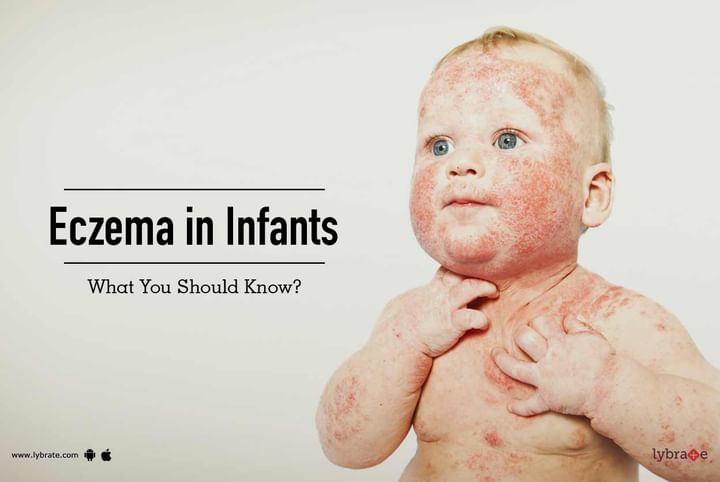Eczema in Infants: What You Should Know?
Are you observing red, crusty patches on the surface of your infant’s skin during his/her first month after birth? This is an indication of infant eczema. It is a dry, itchy skin condition which may occur on any part of your child’s body and is commonly found on the cheeks, legs and arms. This condition is sometimes confused with cradle cap, which is another skin condition.
Causes-
Eczema usually runs in families and is hereditary. If you have eczema, it is likely that your child may have it too. Several problems in the skin barrier allow germs inside and moisture to go out. This is a common cause of eczema in infants. The condition occurs when the body makes insufficient fatty cells or ceramides. When there is not enough of these, the skin loses water and becomes extremely dry.
Does Eczema In Infants Go Away By Itself?
In many cases, infant eczema goes away on its own and most infants outgrow the condition by the time they are ready for school. However, some children do get eczema during their adulthood. This may continue for years without specific symptoms. Such children also tend to have dry skin.
Treatment-
Here are some home treatment options for infant eczema:
-
You should use moisturisers on your child. Moisturisers containing ceramides are a good option, which are available at all over-the-counter (OTC) stores by prescription. You can also opt for good moisturisers, fragrance-free creams and ointments like petroleum jelly. This helps in keeping your baby’s skin in retaining natural moisture. Apply these after a bath.
-
A lukewarm bath is beneficial for your child. It helps in hydrating and cooling the skin. The water should not be very hot and the bath should not exceed 10 minutes. You can also add oatmeal soaking products to your baby’s scrub for soothing itchiness.
-
You must use mild and unscented body soaps for your baby. This is because perfumed, antibacterial and deodorant soaps are rough for your baby’s skin. Scrub some soap on areas of your child’s body where there is dirt, such as the genitals, feet and hand. Do not rub or pat his/her skin.
-
Several medicines are also used for the treatment of infant eczema. These include hydrocortisone creams and ointments, which help in easing inflammation and itching. You should not apply these medicines in excess as they can thin the skin on the affected areas.
You should consult a doctor on observing any signs or symptoms of eczema on your child’s skin. This will help in proper diagnosis of the problem and an early treatment plan will prevent further deterioration of the symptoms.



+1.svg)
